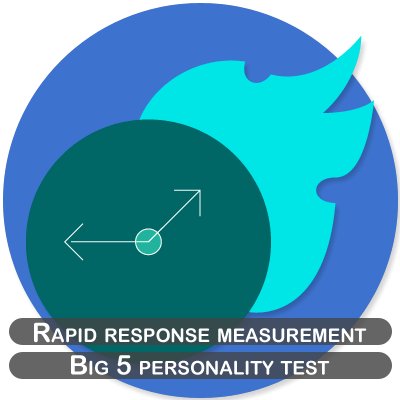New personality test is faster, and tougher to trick
A new 'Big 5' type personality test has been developed by researchers that is both faster to complete and harder to manipulate.

Main titles
- New personality test outcome harder to control
“The test draws on the ‘Big Five’ approach to personality assessment, so it’s a new method for personality testing, rather than a new paradigm,” says Adam Meade, a professor of psychology at North Carolina State University and lead author of a paper on the work.
- As already known, the five broad factors of the Big Five approach are: extraversion, conscientiousness, openness, neuroticism and agreeableness.
“We used this paradigm because it is supported by the broadest body of research and holds up across cultures and demographic groups,” - Adam Meade.
- The new method displays traits and users have a few seconds to decide whether those traits represent them. This method is called the rapid response measurement (RRM).
“People take about one second, on average, to make a decision for each word. This allows us to collect a significant amount of data in a very short period of time – orders of magnitude faster than other tests. The rapid response rate also makes it difficult to manipulate the outcome, and our software incorporates response time into its analysis of responses. For example, if users take too long to respond to an adjective, that response does not have as much impact on scores as adjectives with faster responses.” - Adam Meade.
- Tests show that RRM meaurements correlate favorably with traditional Big5 questionnaires, even though the test was much faster. It was also four times harder to manipulate the outcome with the RRM than with the traditional test.
- Results from a sample of business managers who had taken the RRM were compared to traditional tests, and to real world evaluations from supervisors and peers. The RRM results were more poritively correlated with the real world assessments than the traditional tests.
“We’re optimistic that our approach can streamline the testing process and provide more accurate information for use in training, hiring and research,” - Adam Meade.
Source: news.ncsu.edu

 vneo
vneo 












